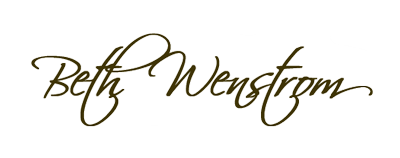
Baroque and Modern

“Wenstrom played with an easy grace and light bravura just right for the scale of this piece. The violinist was also to the fore in two excerpts from Nicola Matteis’s Ayres for the Violin, Book 4, throwing off the virtuosic sections with fine panache and technical security.”
—Lawrence A. Johnson, Chicago Classical Review
“Each is an amazing virtuosa, and it would be hard to pick a favorite. Not only could Wenstrom execute the most fearsome runs with breathtaking ease, she could make the most singing tones come out of her violin without ever resorting to anachronistic vibrato.”
—James Leonard, Ann Arbor Observer
“The 17 tracks here, written for various forces, mostly last between two and five minutes. One of them is longer, a Sonata in D major that runs to over nine minutes. Violinist Beth Wenstrom plays it with vitality and eloquent phrasing, as well as agility: the writing is constantly inventive, sometimes technically demanding and strikingly chromatic.”
—Tim Homfray, The Strad
“Beth Wenstrom was a fine concertmaster and violin soloist.”
—James R. Oestreich, The New York Times

“des solistes de classe mondiale — le corniste, la violoniste, l’hautboïste, et, plus que tout, la flûtiste dans un sublime Benedictus.”
—Christophe Huss, Le Devoir
“Adriane Post and Beth Wenstrom shone with polish, magical tonal variety, and fleet cascades of perfectly placed notes.”
—Christopher Greenleaf, The Boston Musical Intelligencer
“Violinist Beth Wenstrom is outstanding in a substantial solo sonata, and Elliot Figg’s dainty organ playing in a tiny Echo a3 is marvellous.”
—Graham Rickson, The Arts Desk
“They made quite a quartet. They also proved themselves excellent soloists.”
“Wenstrom contributed some heated fiddling during these pieces.”
—Peter Jacobi, Bloomington Herald Times
“Geminiani’s Concert No. 3 in B minor, actually an expansion on a Corelli trio sonata, was enlivened by nicely balanced dialogues between the two solo violinists, Abigail Karr and Beth Wenstrom.”
“Each work is packed with solo passages that displayed the considerable skills of Juilliard’s accomplished players: most notably Ms. Karr and Ms. Wenstrom; Emi Ferguson and Christopher Matthews, the flutists; Molly Norcross and Nathanael Udell, the hornists; and Andrew Arceci, the bassist, who had extensive solos in the trio section of each work’s Menuetto.”
—Allan Kozinn, The New York Times
“There were also fine individual performances in the chamber works, by Beth Wenstrom and Liv Heym, violinists; Emi Ferguson, flutist; Priscilla Smith, oboist; Aya Hamada and Jeffrey Grossman, harpsichordists; and others.”
—James R. Oestreich, The New York Times
“There was some strong playing, especially from Wenstrom; an interesting assortment of music most people had probably not heard before, from “Two in One Upon a Ground” by Henry Purcell Sr. (the father of the better-known composer), with velvety pizzicatos underlying the shining violin; some flashy crowd-pleasers by Matteis; and four suites by Locke that were every bit as quirky and arresting as his biography might lead one to expect.”
—Anne Midgette, The Washington Post
“A convincing demonstration ended the class. Four Juilliard musicians – the violinists Beth Wenstrom and Liv Heym, the cellist Beiliang Zhu, and the harpsichordist Aya Hamada – played Purcell’s Sonata VI in Four Parts, a brilliant ground-bass piece drawing on an ancient four-note descending motif of lament. (The pattern is familiar from Monteverdi’s “Lamento della ninfa,” or, if you prefer, Ray Charles’s “Hit the Road Jack.”) Zhu added telling nuances to the repeating bass, and the violinists gave fire to their variations, as if fighting off the melancholy undertow. In all, it was a very Christiesque performance, elegant and sensual, stylishly wild.”
—Alex Ross, The New Yorker